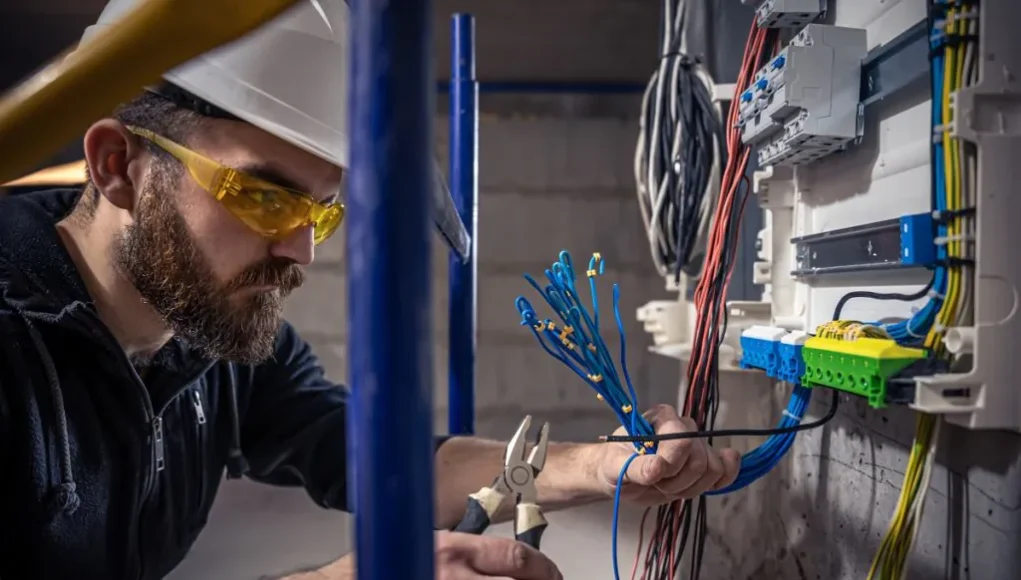Choosing the right low-voltage cabling contractors in PA can make all the difference when setting up or upgrading your network infrastructure. A solid cabling setup ensures reliable connections, efficient data transfer, and smooth operations. But how do you ensure you’re picking the right contractor for the job? Asking the right questions can help you make an informed decision and get the best value for your investment. Before signing the dotted line, here are ten essential questions for your low-voltage cabling contractor.
1. What Experience Do You Have?
Experience speaks volumes in the world of cabling. Ask the contractor how long they have been in the business and what projects they have handled. For instance, if you’re upgrading a large office network, you’ll want a contractor who has successfully managed similar-sized projects. An experienced contractor will be better equipped to handle challenges and provide solutions based on their extensive knowledge.
2. Are You Licensed and Insured?
Verifying that your low-voltage cabling contractor is licensed and insured is essential. Licensing ensures that the contractor adheres to industry standards and regulations, which is vital for safety and quality. Insurance protects you from potential liabilities in case of accidents or damage during installation. Always ask for proof of licensing and insurance to ensure you’re covered.
3. Can You Provide References?
Requesting references from past clients is a great way to gauge the reliability and quality of the contractor’s work. A reputable contractor should be able to provide contact details for previous clients or case studies of completed projects. Reach out to these references to ask about their experience with the contractor, including their punctuality, professionalism, and the quality of the work done.
4. What Is Your Project Timeline?
Understanding the project timeline is crucial for planning and coordination. Ask the contractor how long they expect the installation to take from start to finish. Ensure their estimated timeline aligns with your business needs and other planned activities. Having a clear schedule is important to avoid delays that could impact other aspects of your project.
5. What Is Included in Your Quote?
Ensure you get a detailed breakdown of the quote to avoid unexpected costs. Ask the contractor what is included in their pricing—this should cover materials, labor, and additional services. Clarify any potential extra costs that may arise during the installation. A transparent quote will help you understand exactly what you’re paying for and prevent surprises later.
6. Do You Offer a Warranty or Guarantee?
A warranty or guarantee indicates confidence in the contractor’s work. Ask if they offer any form of warranty or guarantee on their installation. Any issues arising after the installation will be addressed without additional cost. A warranty also reflects the contractor’s commitment to quality and willingness to stand behind their work.
7. What Type of Cabling Do You Recommend?
Different types of cabling serve different purposes. Inquire about the types of cabling the contractor recommends for your specific needs. For example, Cat6 cables are often recommended for high-speed data transfer, while fiber optic cables are ideal for long-distance connectivity. The contractor should be able to explain why their recommendation is suited to your situation and how it aligns with your current and future needs.
8. How Will You Handle Future Upgrades?
Technology and business needs evolve, so planning for the future is important. Ask the contractor how they will ensure the cabling system accommodates future upgrades or changes. A flexible cabling system will allow easier modifications and expansions without major disruptions or additional costs. Understanding their approach to future-proofing your installation can save you time and money.
9. What Safety Measures Do You Implement?
Safety should be a priority during the installation process. Inquire about the contractor’s safety protocols to ensure a safe work environment. This includes the safety of the installation process and ensuring that the cabling does not pose any hazards once installed. A contractor who prioritizes safety will help prevent accidents and ensure that the installation is done correctly.
10. How Do You Handle Troubleshooting and Support?
Finally, find out how the contractor handles troubleshooting and support after the installation. Ask about their process for addressing any issues and the type of support they offer. A reliable contractor should provide ongoing support and be responsive to any problems you encounter. Knowing you have access to support can provide peace of mind and help you resolve issues quickly.
How to Evaluate Contractor Proposals
When you receive proposals from different low-voltage cabling contractors in PA, evaluating them carefully ensures you get the best value for your investment. Here’s how to assess and compare contractor proposals effectively:
- Compare Costs: Look at the total cost of each proposal, including all materials and labor. Ensure that the quotes are detailed and transparent. Beware of proposals that seem unusually low or high compared to others; they could indicate hidden costs or subpar work.
- Check Inclusions: Each proposal should outline what’s included in the price. This should cover all aspects of the installation, from materials to labor and any additional services. A comprehensive proposal helps avoid unexpected expenses.
- Review Project Timelines: Compare the estimated project timelines. Ensure the timelines align with your business needs and other planned activities. A realistic and achievable timeline is crucial for smooth project execution.
- Assess Warranties and Guarantees: Evaluate the warranties or guarantees offered by each contractor. A strong warranty reflects confidence in their work and ensures you have support if issues arise after installation.
- Consider Contractor Experience: Look at each contractor’s experience level and track record. A contractor with relevant experience and a proven history of successful projects is more likely to deliver quality results.
By carefully evaluating these aspects, you can make an informed decision and select a contractor that best fits your needs and budget.
Conclusion
Choosing the right low-voltage cabling contractors in PA is crucial for the success of your network setup. By asking these ten questions, you can ensure that you’re working with a contractor who is experienced, reliable, and committed to quality. Don’t hesitate to reach out for more information or to discuss your needs.
For expert assistance and a seamless installation experience, contact the team at Network Drops today. Our skilled professionals are here to help with all your low-voltage cabling needs and ensure your project runs smoothly from start to finish.
Visit here also: write for us






